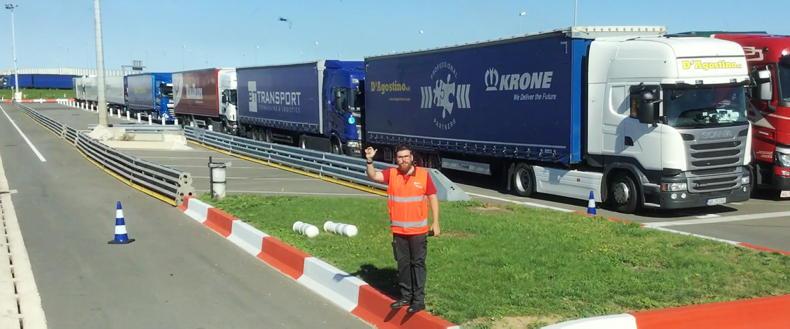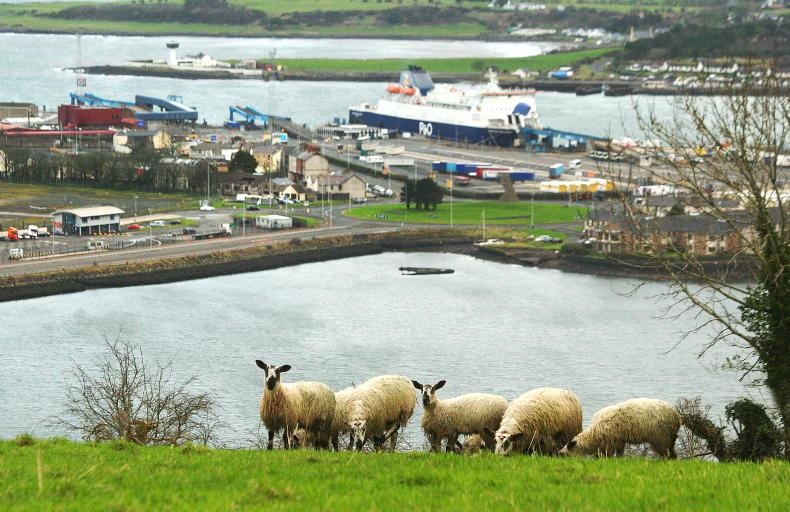The ongoing war in Ukraine has relegated Brexit and controversy around the Northern Ireland protocol to the margins of news.
However, with the 1 July deadline for the introduction of full border checks approaching, there is still little clarity from the UK government on where the designated border control posts (BCP) will be around the UK to admit goods of animal and plant origin that are subject to sanitary and phytosanitary (SPS) controls.
An indicative list has been provided to industry and importers with the UK, but it comes with a strong warning that the list remains to be confirmed and importers using it to make plans are doing so at their own risk.
Infrastructure problem
In the absence of certainty and meaningful infrastructure, there is a real possibility that the full implementation of controls will be deferred further.
Currently, importers have to have the correct certification in place, but physical inspections are not due until 1 July.

Dover is such a busy port on a small site that it is unsuitable for hosting full border controls on site.
Meanwhile, the Northern Ireland protocol continues to function in a partial state while negotiations are ongoing.
Irish exporters have benefited from this, with the UK government deciding that import controls wouldn’t be applied to Ireland while these discussions continued.
If this situation continued indefinitely, it would be the preferred outcome. The way to achieve this as a long-term solution would be for the UK to align with EU SPS controls and if customs controls could be added, then that would be another administrative burden removed.
Sovereignty trumping trade
The problem is that this idea has been continually rejected by the UK in the interests of maximising sovereignty.
However, given the transformed geopolitical situation caused by Russia invading Ukraine, could there be a possibility of the UK and EU reviewing their relationship?
It is clear in relation to wider defence issues that the UK and EU are perfectly aligned without sovereignty being compromised.
Could the UK government decide independently to align with the EU and avail of a seamless trade in SPS goods? It certainly would be in the interests of Irish farmers if they did.
War highlights common interest
When it comes to assessing the likelihood of this happening, it is fair to say that it isn’t top priority with the war in Ukraine for either the EU or UK at this moment.
However, the very fact that both are aligned on the Ukraine invasion displays a common purpose that at least has the possibility of being extended.
There were also some clues in a speech delivered by the former UK lead negotiator Lord David Frost in Switzerland.
While it focused in justification to a large extent, he did acknowledge that there are areas of the agreement that could be improved on and that there was not the opportunity for a reset in relations.
There has been nothing good about the war in Ukraine, but it may just serve to persuade the UK that its interests are more aligned with the EU than it had previously thought.
The ongoing war in Ukraine has relegated Brexit and controversy around the Northern Ireland protocol to the margins of news.
However, with the 1 July deadline for the introduction of full border checks approaching, there is still little clarity from the UK government on where the designated border control posts (BCP) will be around the UK to admit goods of animal and plant origin that are subject to sanitary and phytosanitary (SPS) controls.
An indicative list has been provided to industry and importers with the UK, but it comes with a strong warning that the list remains to be confirmed and importers using it to make plans are doing so at their own risk.
Infrastructure problem
In the absence of certainty and meaningful infrastructure, there is a real possibility that the full implementation of controls will be deferred further.
Currently, importers have to have the correct certification in place, but physical inspections are not due until 1 July.

Dover is such a busy port on a small site that it is unsuitable for hosting full border controls on site.
Meanwhile, the Northern Ireland protocol continues to function in a partial state while negotiations are ongoing.
Irish exporters have benefited from this, with the UK government deciding that import controls wouldn’t be applied to Ireland while these discussions continued.
If this situation continued indefinitely, it would be the preferred outcome. The way to achieve this as a long-term solution would be for the UK to align with EU SPS controls and if customs controls could be added, then that would be another administrative burden removed.
Sovereignty trumping trade
The problem is that this idea has been continually rejected by the UK in the interests of maximising sovereignty.
However, given the transformed geopolitical situation caused by Russia invading Ukraine, could there be a possibility of the UK and EU reviewing their relationship?
It is clear in relation to wider defence issues that the UK and EU are perfectly aligned without sovereignty being compromised.
Could the UK government decide independently to align with the EU and avail of a seamless trade in SPS goods? It certainly would be in the interests of Irish farmers if they did.
War highlights common interest
When it comes to assessing the likelihood of this happening, it is fair to say that it isn’t top priority with the war in Ukraine for either the EU or UK at this moment.
However, the very fact that both are aligned on the Ukraine invasion displays a common purpose that at least has the possibility of being extended.
There were also some clues in a speech delivered by the former UK lead negotiator Lord David Frost in Switzerland.
While it focused in justification to a large extent, he did acknowledge that there are areas of the agreement that could be improved on and that there was not the opportunity for a reset in relations.
There has been nothing good about the war in Ukraine, but it may just serve to persuade the UK that its interests are more aligned with the EU than it had previously thought.







 This is a subscriber-only article
This is a subscriber-only article











SHARING OPTIONS: